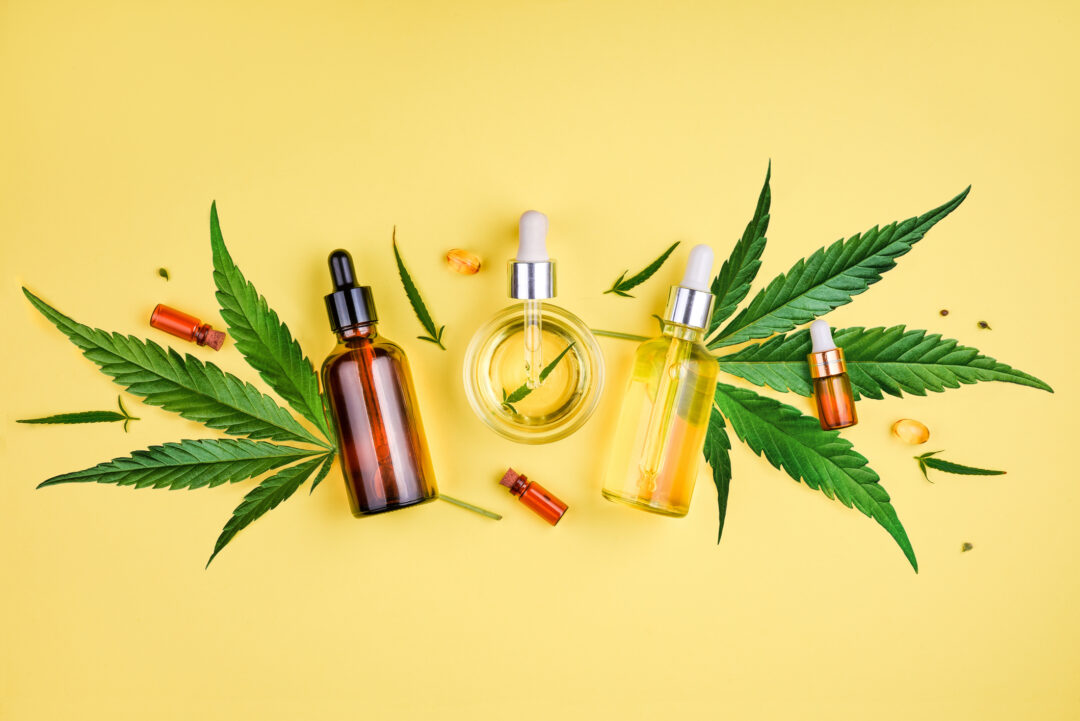The report recognizes the public’s interest in CBD, but says that “there are many questions about the characteristics of currently marketed CBD products because the Agency lacks significant information on what CBD-containing products are on the market and there are little data available on those products themselves.”
A main concern is whether or not the CBD content in the product matches what’s on the label, as well as whether or not the products contain other cannabinoids like THC or contaminants such as heavy metals or pesticides. The studies that have been performed, the report adds, are either small or fail to communicate important information like the sample selection method and product specifications.
The report notes that past tests performed by FDA have found products that contained different amounts of CBD than printed on the label, no CBD at all, and THC. These tests were all, according to FDA, too limited in scope to allow the agency to draw sweeping conclusions. The most recent tests were performed in 2019.
In terms of progress, the report explains that FDA is working with University of Mississippi to develop a method to detect and quantify hemp ingredients in cosmetic products. Out of 41 products claiming to contain CBD, 12 also contained THC. 14 of the products indicated that they contained a specific amount of CBD; eight of those products contained less than 80% of the amount indicated, and two contained greater than 120% of the amount indicated.
FDA is developing a sampling plan for CBD products. The near-term sampling plan involves testing 200 products—83 of which will be tinctures/oils/gel caps—for 11 cannabinoids, as well as analyzing them for heavy metals. Some products, depending on type, will be analyzed for pesticides, residual solvents, and microbial contaminants.
Testing has so far been completed on 147 products. 94% of the products tested contained CBD; of the remaining nine products, seven either did not indicate CBD or clearly indicated “zero CBD” on the label, the report says. Two products that listed CBD on the label did not contain CBD. Of the 102 products that contained CBD, 18% contained less than 80% of the amount indicated; 45% contained within 20% of the amount indicated; and 37% contained more than 120% of the amount indicated. 49% of the products were found to contain THC or THCA.
FDA also has a long-term sampling plan. It is purchasing data on brands, product categories, and distribution channels for CBD products, as well as developing its own comprehensive list of brands operating in the CBD marketplace by assembling data from targeted internet searches and analytics. FDA will use all data sets to randomly sample products across brands, product categories, and distribution channels.
Related: Hawaii Becomes Latest State to Propose CBD Regulations Researchers Note Potential of CBD as COVID-19 Treatment Option NPA: State Regulators Discuss FDA Inaction on CBD
The Consumer Healthcare Products Association (CHPA) hasreleased a statementin response to this report. The statement says: “We’re concerned that the report conclusion further delays any action to better regulate CBD-containing products… FDA’s report findings are consistent with data collected by a number of independent and academic groups testing CBD products over the last year… [which] have all revealed a large percentage of CBD products containing levels of cannabinoids that are either lower or higher than declared on the label. These third-party reports consistently confirm that the CBD/hemp product category would benefit from active regulatory oversight by the FDA and legislative action from Congress.”The statement cites an independent report published in May in theJournal of Dietary Supplements,wherein researchers tested 25 products obtained from commercial outlets in the State of Mississippi. The report found “marked variability” between quantities of CBD claimed on the label and actual CBD content; only three of the products tested were within 20% of the label claim. Three products contained THC, and four products were adulterated with synthetic cannabinoids.
The study concluded: “From this small, but diverse, sampling of hemp-derived merchandise, it appears that most product label claims do not accurately reflect actual CBD content and are fraudulent in that regard.” It also notes that high THC amounts could jeopardize a consumer’s job, and synthetic cannabinoids may cause adverse health effects. “These findings argue strongly for further development of current good manufacturing practices for CBD-containing products and their stringent enforcement.”
To this end, CHPA’s statement continues: “CHPA respects FDA’s desire to gather more data, but we urge the Agency to take action on a path forward… CBD-containing products have proliferated in recent years, leading to increased calls from responsible dietary supplement manufacturers for FDA to take action and protect public health. In addition to CHPA’scitizen petition,CHPA joined fellow dietary supplement trade associations in ajoint letterlast year to Congress encouraging them to address this problem.”
The US Hemp Roundtable also released a statement, noting that there's "not much news here. Citing previous testing data and some more recent but limited random sampling, the FDA revealed what we already knew: While more work needs to be done to ensure CBD products consistently meet label claims, the majority of products do not contain unsafe contaminant levels."
The statement continues: "As an industry that holds itself to the highest standards, we would like to rid the marketplace of all improperly labeled products and unsafe products. Today's report emphasizes what we have been arguing for years: It's high time for the FDA to regulate CBD as a dietary supplement and food additive. The agency's current public stance not only impairs hemp farmers and small businesses; an unregulated marketplace poses real health and safety concerns."
The report can be viewed at thebottom of Marijuana Moment's summary.










